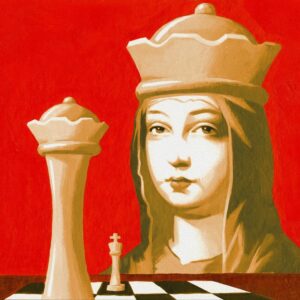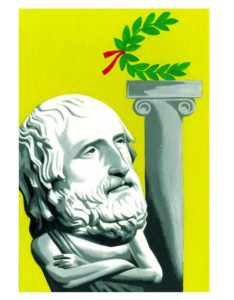Chess has captivated minds for 1,500 years, surviving religious condemnation, Napoleonic exile and even the Russian Revolution
April 15, 2022
Fifty years ago, the American chess grandmaster Bobby Fischer played the reigning world champion Boris Spassky at the “Match of the Century” in Reykjavik, Iceland. The Cold War was at its height, and the Soviets had held the title since 1948. More was riding on the competition than just the prize money.

ILLUSTRATION: THOMAS FUCHS
The press portrayed the Fischer-Spassky match as a duel between the East and the West. But for the West to win, Fischer had to play, and the temperamental chess genius wouldn’t agree to the terms. He boycotted the opening ceremony on July 1, 1972, prompting then-National Security Adviser Henry Kissinger to call Fischer and tell him that it was his patriotic duty to go out there and play. Fischer relented—and won, using the Queen’s Gambit in game 9 (a move made famous by the Netflix series about a fictional woman chess player).
The Fischer-Spassky match reignited global enthusiasm for a 1,500-year-old game. From its probable origins in India around the 6th century, the basic idea of chess spread rapidly across Asia, the Middle East and Europe. Religious authorities initially condemned the game; even so, the ability to play became an indispensable part of courtly culture.
Chess was a slow-moving game until the 1470s, when new rules were introduced that made it faster and more aggressive. The most important changes were greater mobility for the bishops and the transformation of the queen into the most powerful piece on the board. The instigator remains unknown, although the tradition seems to have started in Spain, inspired, perhaps, by Queen Isabella who ruled jointly with King Ferdinand.
The game captivated some of the greatest minds of the Renaissance. Around 1500, the Italian mathematician Luca Pacioli, known as the Father of Accounting, analyzed more than 100 plays and strategies in “De ludo schaccorum” (On the Game of Chess). The hand of Leonardo da Vinci has been detected in some of the illustrations in the only known copy of the book.









